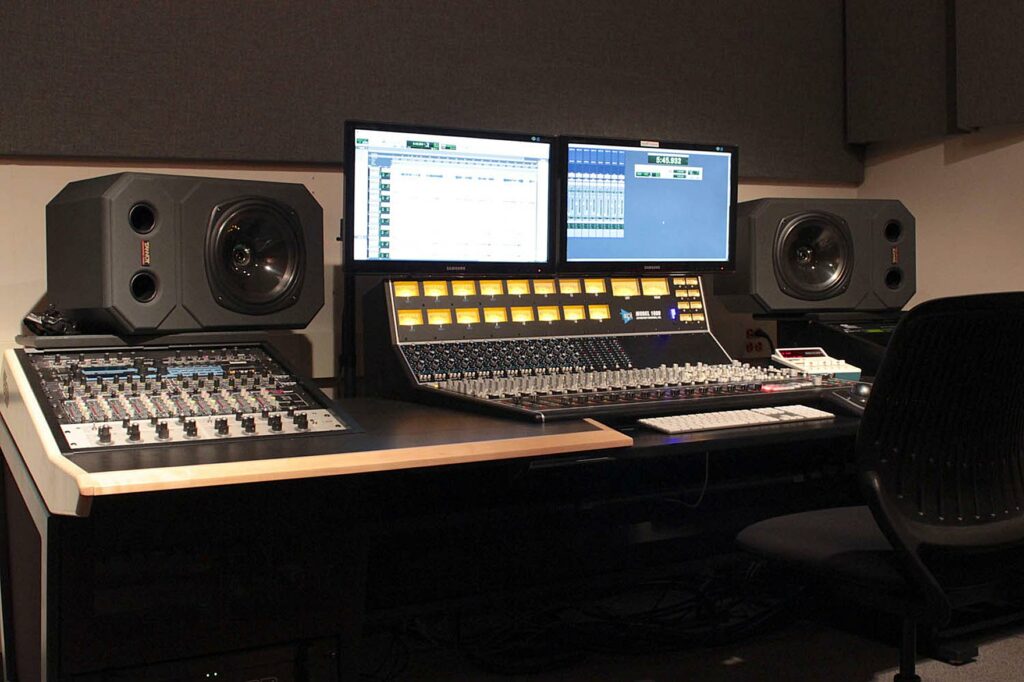Baltimore, Maryland – Nov. 2012:
When the highly-respected Recording Arts and Sciences Program at the Peabody Conservatory/ Johns Hopkins University needed to replace an aging console the clear choice was with a new sixteen-channel API Audio 1608 console, largely because of its authentic sound quality and flexibility. The University program, which awards a double-major Bachelor's degree and a Master's of Arts in Audio Sciences is the American equivalent of the European Tonmeister training program, and its students benefit from being in close alliance with the JHU's G.W.C. Whiting School of Engineering, a dedicated faculty of experts and a comprehensive recording studio facility to anchor the program.
Students from the Peabody Conservatory engage in over one thousand performances a year in five venues of varying size, and the Recording Arts and Sciences Program's studio facilities tie into those venues. Recording arts students record each and every performance under the guidance of faculty members. Beginning students handle simpler stereo recording sessions and assist on more complex sessions, whereas advanced students conduct multi-mic recording sessions for the orchestras, operas and jazz ensembles. Studio D is connected to three of those performance venues, and the new API 1608 console will play a large role in those recording sessions.
The API 1608 is paired with a Pro Tools HD system, which Scott Metcalfe, director of the program, asserts is an excellent hybrid analog/digital combination. "With the API 1608, students can experiment with the full range of possibilities, from in-the-box mixes, to analog summing, to DAW fader control, to full-analog mixing and processing," he said. "It's a very flexible design, and we will use it in a lot of different ways."
Metcalfe and colleagues also look forward to putting the API 1608's modular design to equally practical use. Each channel features a slot for an API 500-series format module, with eight spare slots that can be patched in. Although API is famous for having pioneered the format and makes many popular 500-series processors, a huge number of established and boutique manufacturers have adopted the 500-series format for their processors as well. Thus, the API 1608 readily accepts third-party processors of tremendous scope and variety.
API is already present in the facility's other studios. A four-channel API 3124 preamp and a ten-space 500V rack loaded with API equalizers and dynamics processors lend the warm analog "API sound" to Studio A. "In addition to the sonics of API and the flexibility of the 1608, I was also happy to be working with our neighbors," said Metcalfe, acknowledging the fact that API's headquarters are a mere twenty-five minutes from the Recording Arts and Sciences Program at the Peabody Conservatory/ Johns Hopkins University.
